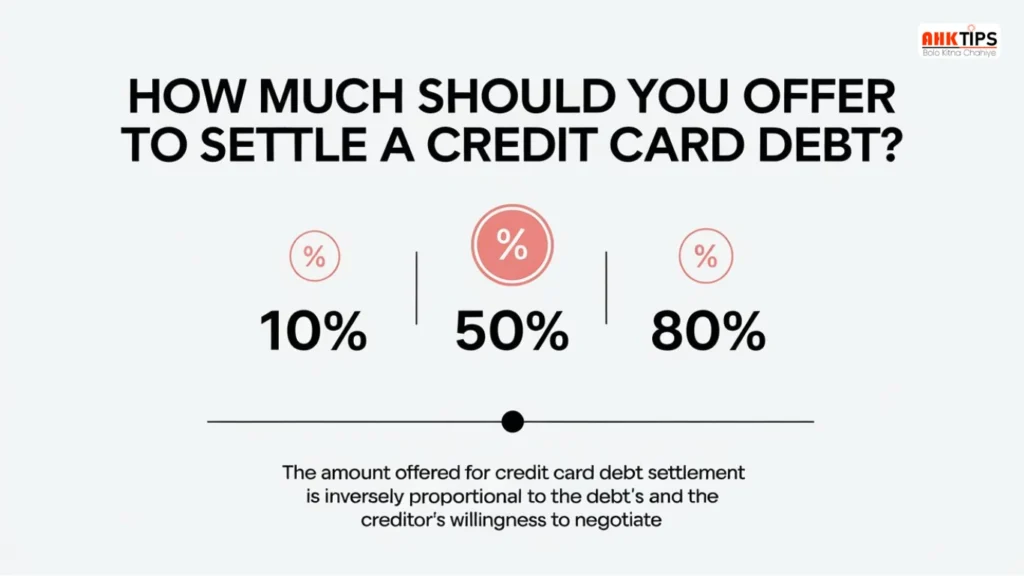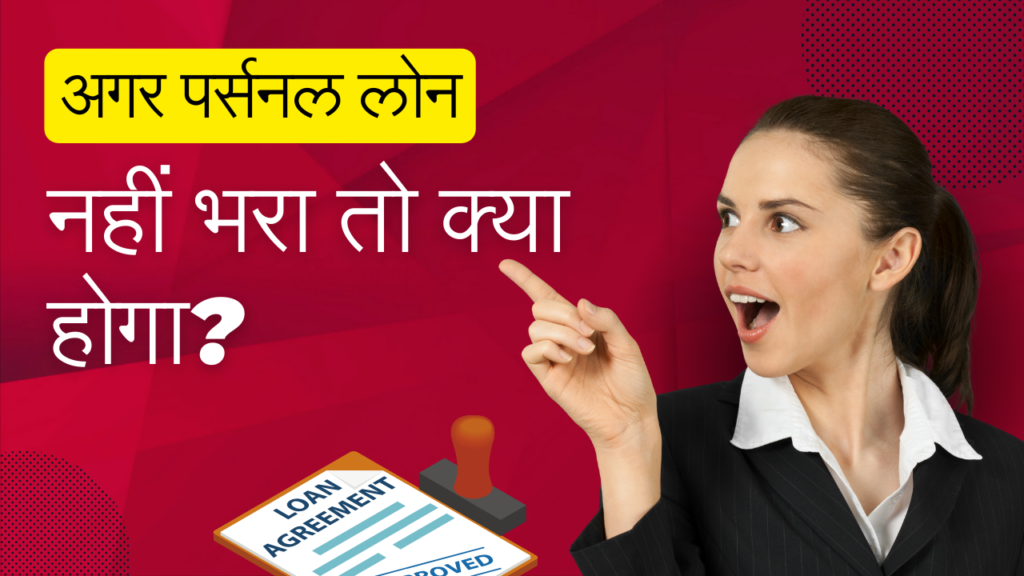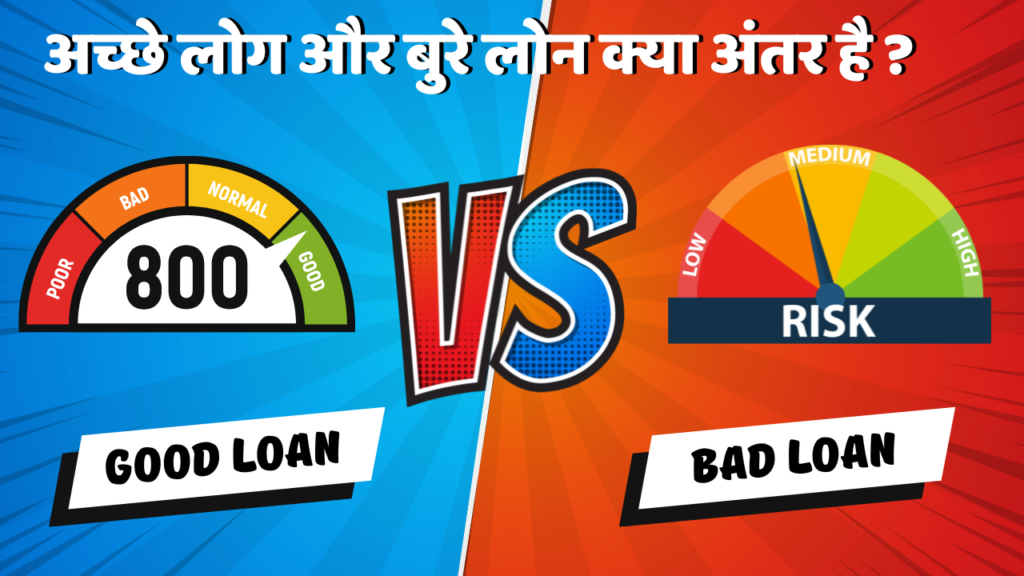Negotiation might be an appropriate way if you’re experiencing credit card debt that has become hard to pay off. Credit card debt settlement means that you’re providing a single sum payment which is lesser than the outstanding amount; hence, you would not feel burdened with immediate debt pressure. How much to offer? Balancing both you and your creditor in such an amount for successful settlement is what is important.
What is a Credit Card Debt Settlement?
A credit card debt settlement is an agreement between a creditor and a borrower in which the creditor accepts a reduced amount as full payment for the debt. It is usually pursued when the borrower is in financial distress and cannot meet the original repayment terms. The objective is to pay the debt at a lessened sum so that the lender avoids ongoing collection actions or legal steps, and the creditor will be able to collect some part of the amount owed instead of losing everything.
How Much Should You Offer to Settle?
You may start with a proposal of an offer between 20-40% of the total outstanding balance. This is a general guideline and, of course, depending on the conditions, several aspects might affect your final offer such as the age of the debt, your financial position, and that of the creditor. Let’s talk about these issues.
Current Balance of Debt
Your first offer may be a percentage of your balance today that could be principal plus interest or late fees. Creditors generally will accept a settlement of 20-50% of the face amount of the debt. So if you are owing Rs 800,000 your first offer might be between Rs 160,000 and Rs 320,000.
Debt age and delinquency
At such times, if the debt is several months old and has been marked delinquent, creditors may be much more willing to negotiate a favorable settlement to recover some of the debt. The longer the debt goes unpaid, the greater the opportunity that the creditor will settle for a smaller percentage, sometimes even as low as 20-30%.
Your Financial Situation
Being upfront about your financial hardship can help in negotiating a lower settlement. If you’re experiencing job loss, medical bills, or other financial hardships, creditors might consider a reduced settlement. In such cases, it’s often wise to start with an offer around 25% of the balance and negotiate from there.
Creditor’s Policy
Each creditor has its own policies concerning settling debt. A creditor may have a flexible or quick settlement requirement, while another will not. Another way to understand what the creditor is likely to accept is through research on creditor history or inquiry from people with similar debt settlements.”.
Steps to Determine Your Credit Card Debt Settlement Offer
The right offer is determined with great planning and a good understanding of the money you have. Here’s your step-by-step guide:
Understand your Finances
Analyze your financial situation in order to know how much you can fairly offer as a lump-sum. These include income, expenses, and savings in order that you ensure you meet the agreed amount without endangering the other payment obligations.
Know Your Total Credit Card Debt
Collect the total amount outstanding, interest, late fees, and all other charges. Knowing the amount helps in making a realistic offer that creditors may take seriously.
Lowball Offer
Start with a low offer. This is typically 20-30% of the total balance. This gives room to negotiate up if needed. Creditors are likely to come back with a counteroffer so starting low allows room for negotiation.
Defend Your Proposal
Be prepared to explain your financial hardship honestly. Having documentation, such as medical bills, unemployment records, or proof of income reduction, can strengthen your case and demonstrate to the creditor why a settlement is necessary.
Negotiate and Finalize the Agreement
Once the creditor and you agree on an amount, get all the details in writing and make sure that such an amount has been agreed on to settle the debt in full.
Tips for Successful Credit Card Debt Settlement
With settling credit card debt, patience plays a huge part, negotiation must be skillfully done, as well as creating a clear agenda. Here’s the list:
Stay Calm and Professional
- Negotiations can be strenuous, making it easier this way if remaining calm and respective.
Be realistic
Laying low with your lowball deal can sometimes halt discussions indefinitely.
- Stick to the Settlement: Be sure to have the ready funds to pay according to the agreement reached. Missed payments might cause them to cancel it.
- Document Everything: Keep documents of all contacts with the creditor and ensure settlement terms are reduced to writing prior to making payment.
- Consider Third-Party Help: If you’re unsure of the negotiation process, working with a debt settlement company or credit counsellor may be beneficial. Just be aware of the fees involved with these services.
Pros and Cons of Settling Credit Card Debt
While settling debt can be very relieving, it is also important to know the advantages and disadvantages.
Advantages
- Lower Debt Burden: Settlement lowers your debt balance, making it easier to handle.
- No More Collection Activities: When you settle, you are protected from lawsuits, wage garnishment, and other collection activities.
- Credit Score Improvement: Once the initial hit from settlement has occurred, paying other debts responsibly can help your credit score recover over time.
Disadvantages
- Credit Score Impact: Settlement of a debt usually is negative for credit score purposes, because it is listed as “settled” and not “paid in full.”
- Possible Tax Consequences: The IRS views some debt as income, taxable by the forgiven individual. Tax advice is therefore essential in these situations.
- Long-term consequences on credit worthiness: Accounts settled stay in your credit report for seven years, thus potentially affecting future loan eligibility and interest rates.
What Happens After a Credit Card Debt Settlement?
You then have settled your debt, and the status of your account would be marked “settled” in your credit report, affecting your credit score as well as the ability to borrow. On the other hand, this is when proactive steps towards recovering your finances come into the picture.
To Rebuild Your Credit After Settlement:
- Pay other bills on time: Payment of other bills on time gradually increases your credit score.
- Avoid applying for new credit too soon after settlement, as this may raise a red flag to lenders about your stability.
- Use Credit Wisely: Keep credit utilization low; pay balances in full, every month.
- Review Your Credit Report: Review your credit report frequently to ensure that the status of settlement is reported correctly and try to improve your credit history.
Conclusion
Settling your credit card debt may be a simple and practical approach toward managing a staggering overload of debt. However, finding the ideal offer is very essential. Using a reasonable percentage based on the age of your debt, financial condition, or policies applied by a lender can enhance the possibility of settling successfully. Keep in mind that a settlement will remove burdens temporarily, though it will affect your credit score and, perhaps even future financial possibilities. Ensure that the settlement terms are clear, documented, and manageable so that you close the debt on favorable terms and set up for a stable financial future.
FAQ’s
Ans: Yes, you can negotiate directly with creditors. However, professional debt settlement companies can also assist in the negotiation process for a fee.
Ans: Once the debt is settled, collection calls related to that account should stop. Ensure you get a settlement confirmation in writing.
Ans: The exact impact varies, but it can drop significantly based on factors like your previous credit score and the amount of debt.
Ans: Yes, if you have multiple debts, you can try to settle each one. However, it’s essential to manage payments to avoid defaulting on agreed settlements.
Ans: Yes, even after a settlement, lenders may view it as a negative marker, potentially affecting loan approvals and interest rates.













